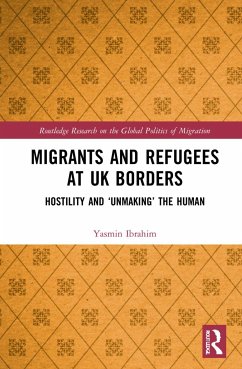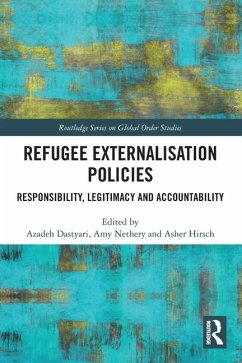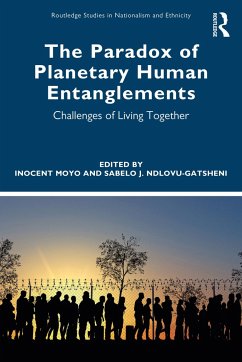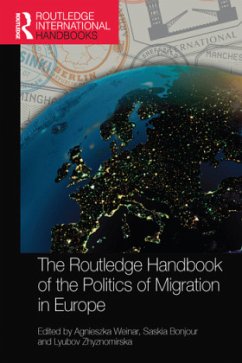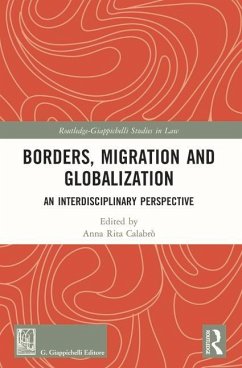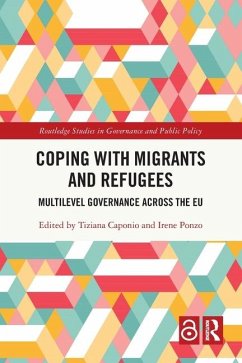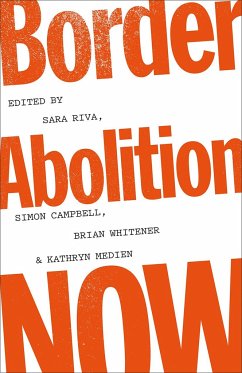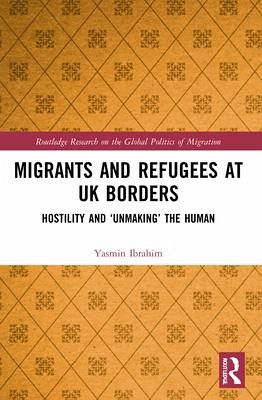
Migrants and Refugees at UK Borders
Hostility and 'Unmaking' the Human
Versandkostenfrei!
Versandfertig in 6-10 Tagen
45,99 €
inkl. MwSt.
Weitere Ausgaben:

PAYBACK Punkte
23 °P sammeln!
This book investigates the hostile environment and politics of visceral and racial denigration which have characterised responses to refugees and migrants within the UK and Europe in recent years.The European 'migrant crisis' from 2015 onwards has been characterised by an extremely intimidating atmosphere which denies the basic humanity of refugees and migrants. Deep rooted in Western Enlightenment trajectory, this racially-driven politics is linked to the Western theories of scientific superiority which went on to become the basis of eugenics and coloniality as part of modernity. Focusing on ...
This book investigates the hostile environment and politics of visceral and racial denigration which have characterised responses to refugees and migrants within the UK and Europe in recent years.
The European 'migrant crisis' from 2015 onwards has been characterised by an extremely intimidating atmosphere which denies the basic humanity of refugees and migrants. Deep rooted in Western Enlightenment trajectory, this racially-driven politics is linked to the Western theories of scientific superiority which went on to become the basis of eugenics and coloniality as part of modernity. Focusing on the 'migrant crisis', Brexit, and the impacts of the global pandemic, this book unpicks the waves of crises and neuroses about the 'Other' in Europe and the UK. The chapters analyse the rhetoric of camps, refrigerated death lorries, the notion of channel crossings and 'accidental' drownings, the formation of relationship with border architecture such as the razorwire, and corporeal resistance in detention centres through hunger strike. In examining such specific sites of rhetorical articulation, policy formation, social imagination, and its incumbent visuality, the chapters deconstruct the intersection of dominant ideologies, power, knowledge paradigms (including the media) as part of the public sphere and their combined re-mediation of the dispossessed humans in the shores and borders of Europe.
This important interdisciplinary volume will be of interest to researchers of migration, humanitarianism, geography, global development, sociology and communication studies.
The European 'migrant crisis' from 2015 onwards has been characterised by an extremely intimidating atmosphere which denies the basic humanity of refugees and migrants. Deep rooted in Western Enlightenment trajectory, this racially-driven politics is linked to the Western theories of scientific superiority which went on to become the basis of eugenics and coloniality as part of modernity. Focusing on the 'migrant crisis', Brexit, and the impacts of the global pandemic, this book unpicks the waves of crises and neuroses about the 'Other' in Europe and the UK. The chapters analyse the rhetoric of camps, refrigerated death lorries, the notion of channel crossings and 'accidental' drownings, the formation of relationship with border architecture such as the razorwire, and corporeal resistance in detention centres through hunger strike. In examining such specific sites of rhetorical articulation, policy formation, social imagination, and its incumbent visuality, the chapters deconstruct the intersection of dominant ideologies, power, knowledge paradigms (including the media) as part of the public sphere and their combined re-mediation of the dispossessed humans in the shores and borders of Europe.
This important interdisciplinary volume will be of interest to researchers of migration, humanitarianism, geography, global development, sociology and communication studies.





